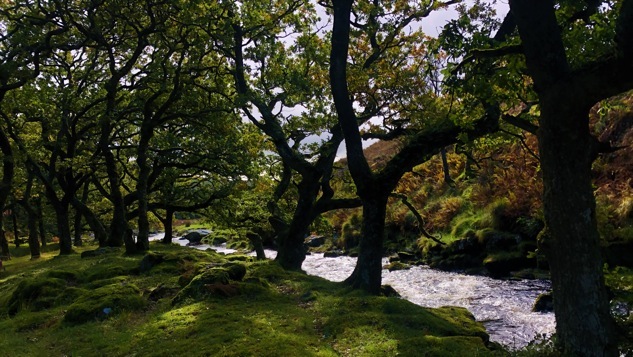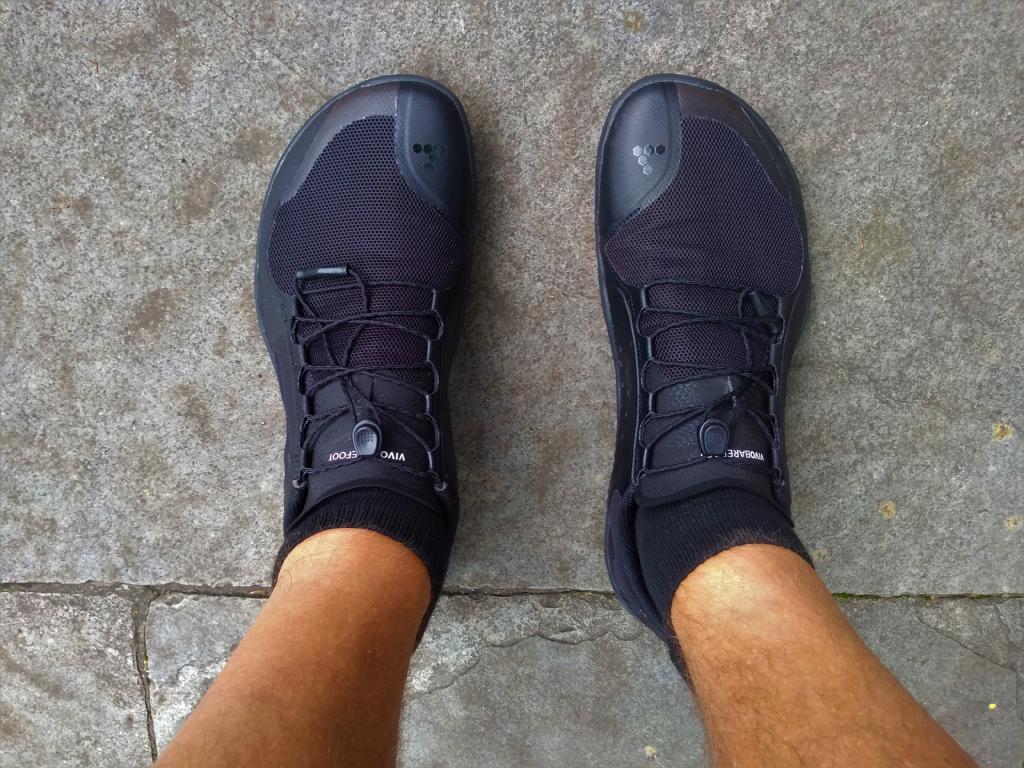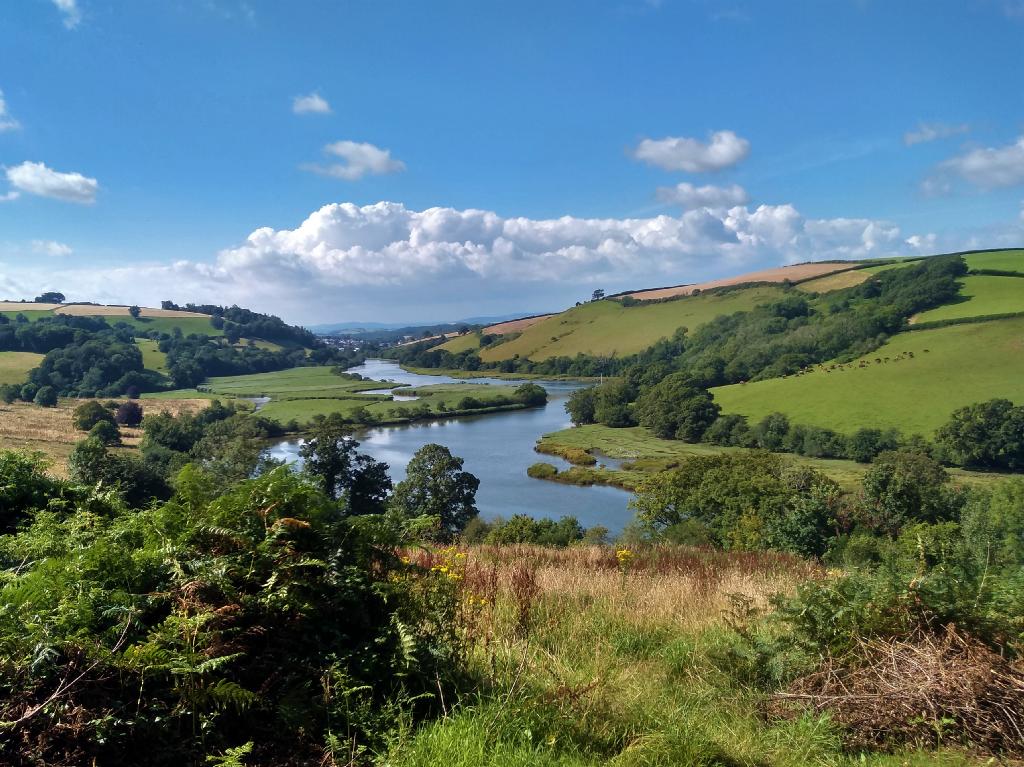Outdoors Therapy

Recently recognised by the World Economic Forum, spending time in natural surroundings, most specifically, as experienced in the contemporary Japanese practice of forest-bathing (shinrin yoku), around trees, can bring about improved levels of health and well-being. Trees emit oils, known as phytoncides, to protect against germs and insects and these can have a helpful effect on our immune system. Scientific results have shown that periods of quiet contemplation immersed in a wood or forest can lower blood pressure, reduce stress hormones, reduce depression and boost our energy.
My interest in outdoor therapy began 25 years ago in the vast cloud forests of central Colombia in South America where I lived and worked on an ecological commune run by an intrepid group of Irish primal scream therapists. Having travelled widely, I had already spent a number of years living and working on the land on the Greek island of Crete. As a Londoner, I grew to appreciate the simple, yet whole, lifestyles of those I met and began to be aware of the therapeutic benefits I was receiving from Mother Nature.
My interest in outdoor therapy began 25 years ago in the vast cloud forests of central Colombia in South America where I lived and worked on an ecological commune run by an intrepid group of Irish primal scream therapists. Having travelled widely, I had already spent a number of years living and working on the land on the Greek island of Crete. As a Londoner, I grew to appreciate the simple, yet whole, lifestyles of those I met and began to be aware of the therapeutic benefits I was receiving from Mother Nature.
Being outdoors in the natural spaces that London offers definitely has a restorative effect on both my physical and mental well-being and, over the past number of years, I have found it is becoming a more accepted way of offering therapy that yields successful results for a wide range of people. I offer outdoors ‘walk ‘n talk’ therapy with individuals and have held sessions in over 100 different outdoor locations within London. The sessions typically last for an hour, or for longer periods by negotiation, and take place in Dulwich and Sydenham Woods, on Hampstead Heath, by the lakes in Regents Park and Battersea Park or in a local tree-full park within south and central London such as Peckham Rye Park, Dulwich Park, Brockwell Park and Greenwich Park.
The necessary boundaries of the counselling relationship remain including a mutually agreed focus for our work together and an agreement regarding confidentiality. Sessions can involve walking and talking, sitting, various mindfulness and meditative techniques and sensory awareness practices. There is no fitness requirement needed to benefit from outdoor counselling.
The necessary boundaries of the counselling relationship remain including a mutually agreed focus for our work together and an agreement regarding confidentiality. Sessions can involve walking and talking, sitting, various mindfulness and meditative techniques and sensory awareness practices. There is no fitness requirement needed to benefit from outdoor counselling.


Article published in
Therapy Today
(Rewilding Therapy Issue):
From Chair Work to Tree Work
Twenty-five years ago, I spent some months living in the lush, dense, tropical natural environment of the Colombian cloud forest. Every hanging branch was a potential python, mosquitoes incessantly bit through my clothing, howler monkeys more than lived up to their name, furry tarantulas stealthily scuttled in and out of the wooden shacks we slept, and it rained and rained and rained. After a few weeks of stubborn but futile resistance, the only response was to let go and be with things as they were.
I started my therapy practice working in a small room above the vibrant atmosphere of Brick Lane in East London. Noticing a number of my clients were experiencing an ongoing conflict between how they wanted life to be against the reality of how things were, I wondered if being outside with the year-round unpredictable weather of London could offer a similar experience for my clients as I had encountered in Colombia.
Initially, I drew clients who appreciated both the freedom to move and to not have to look directly at me as we walked side by side. My experience since has been that clients are more willing to move, jump, shout, push, pull, and hug, as they express themselves outdoors. Paradoxically, there is something about being outside in a shared space in proximity to other people that allows clients to release their anger in outstretched elbow swings and to raise their voice with an ease that isn’t as readily available indoors.
Working outdoors, I feel the presence of others. I’m walking in the footsteps of William Blake who traversed many of London’s open spaces and when on Hampstead Heath, I often picture a gleeful Donald Winnicott freewheeling down Parliament Hill on his bicycle, his legs outstretched giving a joyful yelp as he passes by.
From Chair Work to Tree Work
Twenty-five years ago, I spent some months living in the lush, dense, tropical natural environment of the Colombian cloud forest. Every hanging branch was a potential python, mosquitoes incessantly bit through my clothing, howler monkeys more than lived up to their name, furry tarantulas stealthily scuttled in and out of the wooden shacks we slept, and it rained and rained and rained. After a few weeks of stubborn but futile resistance, the only response was to let go and be with things as they were.
I started my therapy practice working in a small room above the vibrant atmosphere of Brick Lane in East London. Noticing a number of my clients were experiencing an ongoing conflict between how they wanted life to be against the reality of how things were, I wondered if being outside with the year-round unpredictable weather of London could offer a similar experience for my clients as I had encountered in Colombia.
Initially, I drew clients who appreciated both the freedom to move and to not have to look directly at me as we walked side by side. My experience since has been that clients are more willing to move, jump, shout, push, pull, and hug, as they express themselves outdoors. Paradoxically, there is something about being outside in a shared space in proximity to other people that allows clients to release their anger in outstretched elbow swings and to raise their voice with an ease that isn’t as readily available indoors.
Working outdoors, I feel the presence of others. I’m walking in the footsteps of William Blake who traversed many of London’s open spaces and when on Hampstead Heath, I often picture a gleeful Donald Winnicott freewheeling down Parliament Hill on his bicycle, his legs outstretched giving a joyful yelp as he passes by.